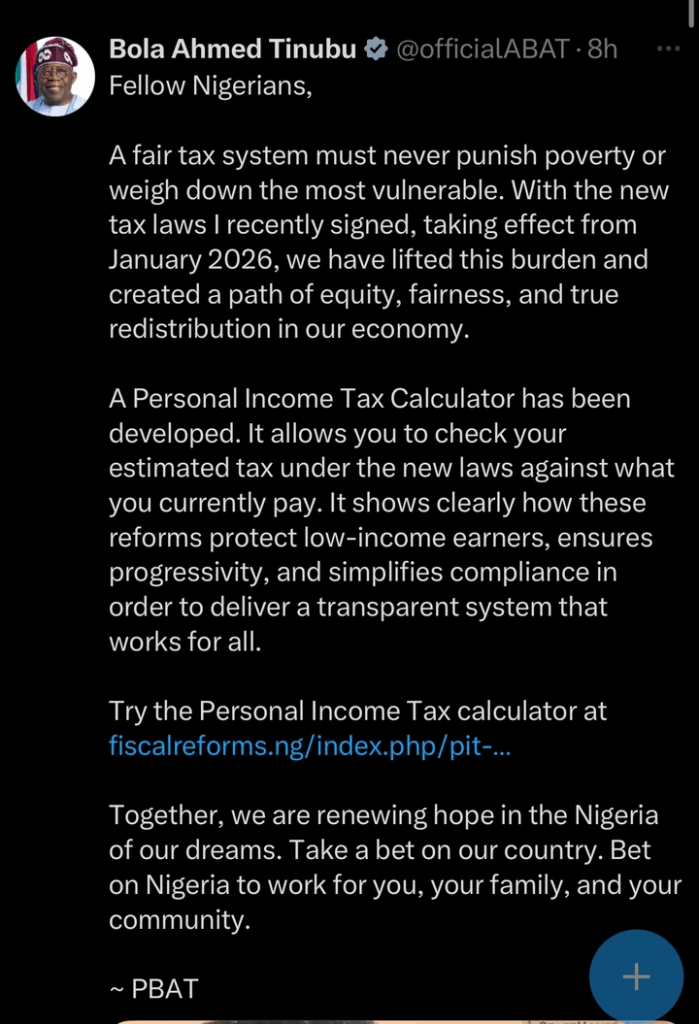Nigerians Slam Tinubu’s New Reforms Despite Transparency Claims

President Bola Ahmed Tinubu has announced the implementation of new tax reforms, which will take effect from January 2026, emphasizing fairness and equity in Nigeria’s fiscal system. The announcement was made on his official X (formerly Twitter) account, where he assured citizens that the revised tax framework will lift the burden on low-income earners while introducing a more transparent and progressive system.

In his post, the President stated: “A fair tax system must never punish poverty or weigh down the most vulnerable. With the new tax laws I recently signed, taking effect from January 2026, we have lifted this burden and created a path of equity, fairness, and true redistribution in our economy.” He further revealed the launch of a Personal Income Tax Calculator at fiscalreforms.ng, which allows Nigerians to compare their current tax rates with the new rates under the reformed system. According to the President, this tool will demonstrate how the changes “protect low-income earners, ensure progressivity, and simplify compliance.”
However, the announcement sparked mixed reactions online, with some Nigerians questioning the practical implementation and timing of the reforms. One user asked: “Who or what actually determines this amount for a self-employed businessman? Is it based on cash flow, bank balance, stocks, or something else? This question is the meat of this tax reform burger.” Another critic redirected attention to insecurity concerns: “With all due respect Mr. President, why are you not prioritizing and addressing the brutality that happened in Katsina state? Why do you always neglect the matters that concern the lives of Nigerian citizens?”
Meanwhile, some reactions were blunt and dissatisfied with the new system. A user who tested the calculator wrote: “Oga president, I have tried your calculator; it’s a wicked tax! Anyway, we have a wicked regime.” These comments highlight the growing tension between citizens seeking immediate security solutions and government efforts to pursue fiscal reforms aimed at long-term economic stability.
As the new tax law countdown begins, the administration faces the dual challenge of convincing Nigerians that the policy will truly favor the vulnerable while addressing pressing issues such as insecurity and inflation that continue to dominate public discourse.
COURTESY: olamilekan21

Post Comment